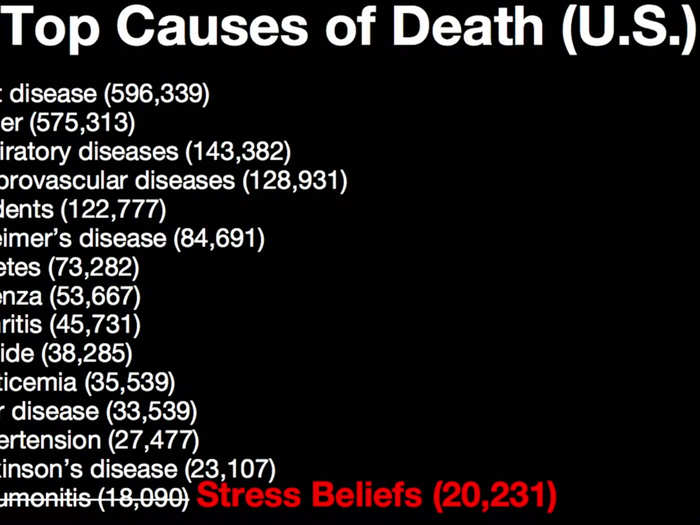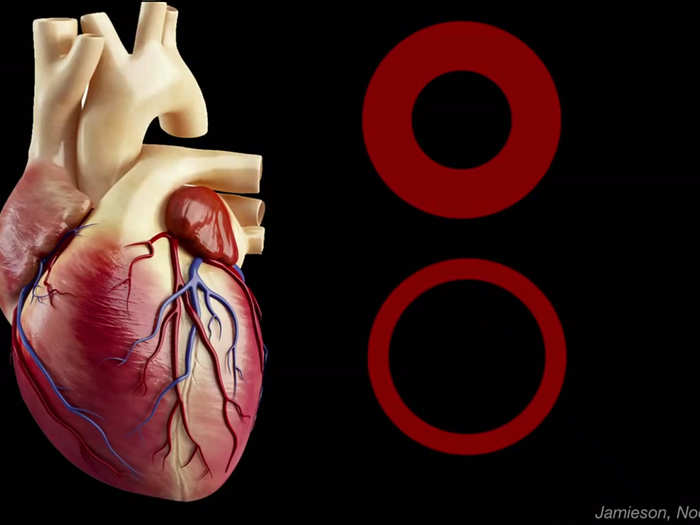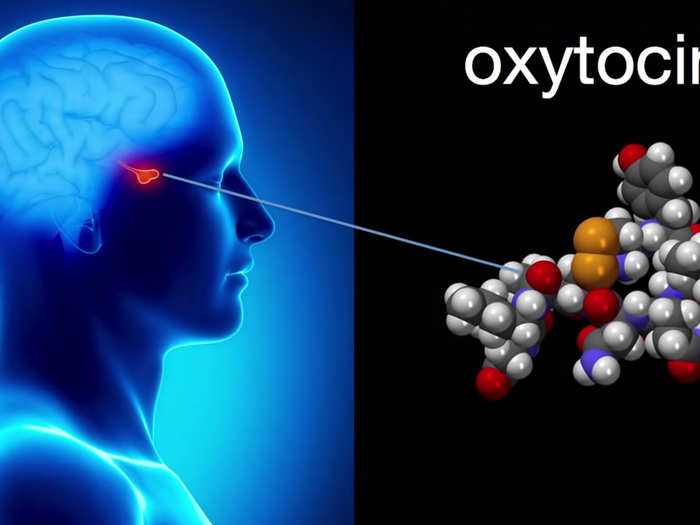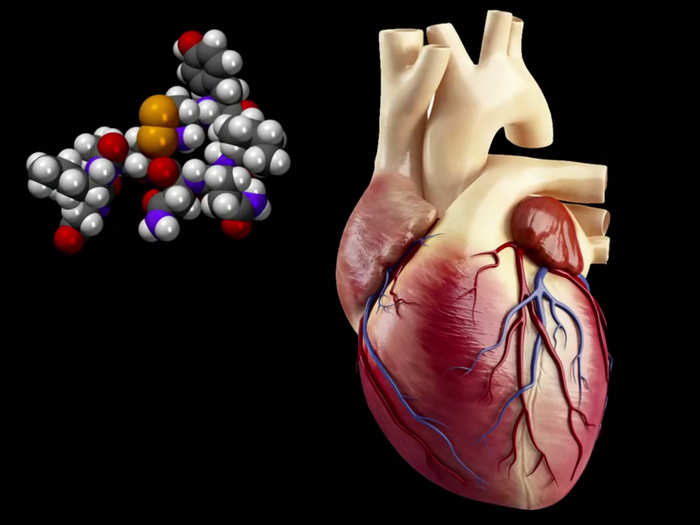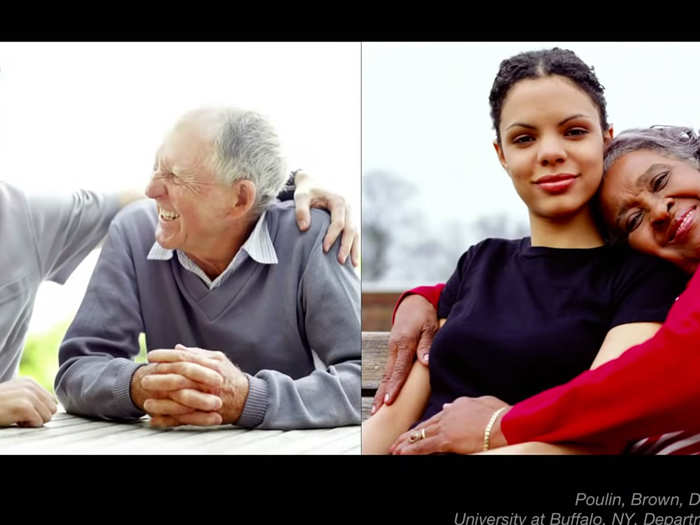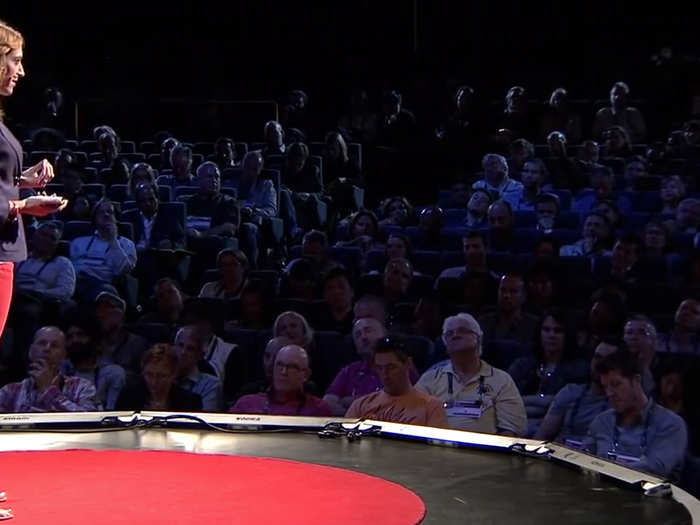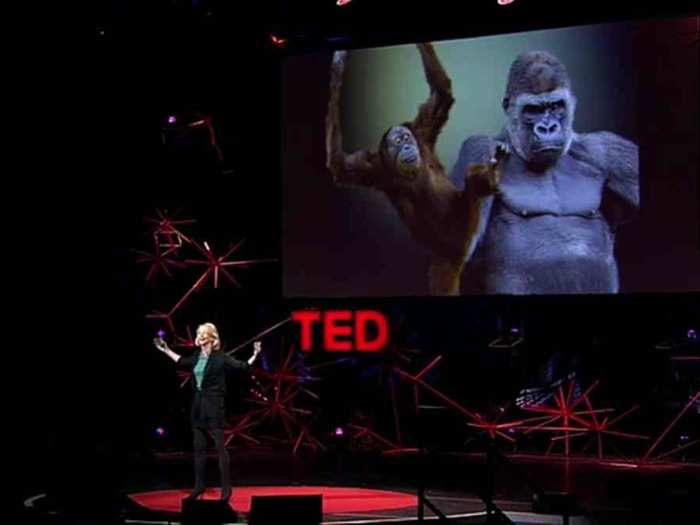By extrapolating their data, the researchers estimated that a negative view of stress coupled with lots of it kills over 20,000 Americans each year.
This would put it above skin cancer, HIV/AIDS, and homicide in this list.
In a second study, participants' hearts were monitored in times of induced stress. Most respondents showed restricted blood vessels (top circle), but those who were told stress was a "helpful" reaction to a threat showed relaxed blood vessels (bottom circle).
These researchers, from Harvard University, explained to the second group of test subjects that in a time of stress, a pounding heart prepares the body for action and an increased breathing rate brings oxygen to the brain. This effectively kept each subject from fearing his or her body's natural reaction.
When you're stressed, your pituitary gland releases oxytocin, a hormone that compels you to seek support.
Oxytocin is also released when you hug someone.
Oxytocin is an anti-inflammatory that allows blood vessels to stay relaxed under stress.
When oxytocin molecules react with the heart's receptors for this hormone, heart cells are compelled to regenerate, and thus recover from any stress-induced damage.
McGonigal's conclusion is that you should seek social contact and social support during times of stress to boost your oxytocin levels.
"I find this amazing, that your stress response has a built-in mechanism for stress resilience — and that mechanism is human connection," she said.
For her final point, McGonigal referenced a third study that found that every major stressful life experience increased an adult's risk of death by 30% — unless they also spent a significant amount of time helping loved ones and neighbors. Then, there was a 0% increase in risk of death.
The study, from the University of Buffalo, tracked 1,000 Americans, ages 34 to 93, for five years. The researchers asked them to report their stress levels and how often they helped friends, neighbors, and people in their community. The researchers tracked public records to see who died.
"When you choose to view your stress response as helpful, you create the biology of courage. And when you choose to connect with others under stress, you can create resilience," McGonigal said.
Click here to watch the full TED Talk.

